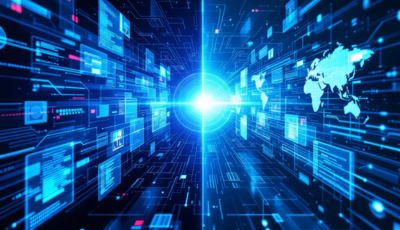Desk customer service remains a strategic differentiator within enterprise help desk operations. As organizations face rising expectations for rapid resolution and consistent support quality, the interpersonal and technical competencies of service desk agents directly influence customer loyalty. Integrating service desk automation can streamline routine workflows, but human-centered skills remain critical for trust and long-term retention. The following roundup presents the top desk customer service skills that guide B2B support operations toward improved satisfaction, reduced churn, and optimized performance.
Skill Overview Table
Empathy And Active Listening
Empathy and active listening represent the cornerstone of effective desk support. Agents who demonstrate genuine understanding of a user’s frustration create an immediate sense of trust. In this scenario, empathic responses not only calm agitated customers but also reduce repeat inquiries by addressing underlying concerns.
Key Actions:
- Reflect feelings with phrases such as “I understand how that could be frustrating.”
- Allow customers to finish their explanation before offering solutions.
- Paraphrase key points to confirm accuracy and show attentiveness.
Clear And Concise Communication
Clear and concise communication prevents misunderstandings and accelerates resolution. IT leaders may note that overly technical explanations can confuse business users. Instead, framing solutions in straightforward language ensures alignment between technical and non-technical stakeholders.
Best Practices:
- Use short sentences and avoid jargon when possible.
- Summarize next steps at the end of each interaction.
- Provide written confirmation of agreed actions via email or in-system notes.
Technical Troubleshooting Expertise
Technical troubleshooting expertise reduces average resolution time and boosts confidence in the support desk. Organizations may consider tiered training that deepens product knowledge while reinforcing diagnostic frameworks. That’s why agents equipped with structured troubleshooting approaches achieve higher first-contact resolution rates.
Implementation Tips:
- Follow a standardized diagnostic checklist for common issues.
- Leverage a shared knowledge base to document new findings.
- Escalate complex cases with detailed logs and system snapshots.
Multichannel Support Proficiency
Multichannel support proficiency enables help desk teams to meet customers on their preferred platforms. From email to chat and social media, consistency across channels preserves brand voice and responsiveness. In other cases, a help desk contact center strategy may centralize interactions for better visibility and handoff.
Action Steps:
- Define response standards for each channel, including expected SLAs.
- Train agents on unified ticketing tools to manage cross-channel threads.
- Monitor channel-specific KPIs to allocate resources effectively.
Proactive Problem Resolution
Proactive problem resolution shifts the support desk from reactive firefighting to strategic prevention. By analyzing trends and consulting common help desk problems and solutions, teams can preempt recurring incidents and lower overall ticket volume.
Proactive Measures:
- Review top incident categories weekly and deploy targeted fixes.
- Send out system health alerts to affected user groups.
- Update self-service resources based on emerging issue patterns.
Patience And Sincerity
Patience and sincerity form the human touch in desk support. In situations where a technical fix is not immediately available, honest communication about timelines and limitations preserves credibility. From there, agents who maintain calm professionalism help customers feel supported rather than dismissed.
Support Techniques:
- Offer realistic resolution estimates rather than overpromising.
- Express genuine apologies when service levels fall short.
- Follow up on outstanding issues even when there’s no new update.
Metrics-Driven Service Improvement
Metrics-driven service improvement ensures continuous refinement of desk customer service. By tracking help desk metrics, support leaders can pinpoint skill gaps and process bottlenecks. That’s why successful teams align training programs with KPI trends such as agent utilization and ticket backlog (InvGate).
Improvement Cycle:
- Analyze weekly KPI reports to identify performance variances.
- Align coaching sessions with common deficiencies.
- Reassess metrics post-training to measure impact.
Continuous Skill Development
Continuous skill development readies desk teams for evolving technology and customer demands. Organizations may consider regular workshops, certification paths, and hands-on labs. In addition, familiarizing staff with emerging ai help desk tools equips them to balance automation with personalized support.
Development Strategies:
- Schedule quarterly training on new software releases and protocols.
- Encourage peer-to-peer knowledge sharing and mentoring.
- Allocate time for agents to explore trial environments.
Summary And Recommendations
Adopting these eight core skills—ranging from empathy to metrics-driven improvement—positions desk customer service teams to win lasting loyalty. Organizations may integrate structured training, leverage analytics, and supplement workflows with automation while preserving the human element. By breaking down each competency into actionable steps, support leaders can chart a clear roadmap for team development and performance excellence.
Need help with desk customer service challenges? We help match organizations with the right provider and solution based on specific operational goals and skill requirements. Connect with us today to explore tailored desk customer service strategies and technologies.








